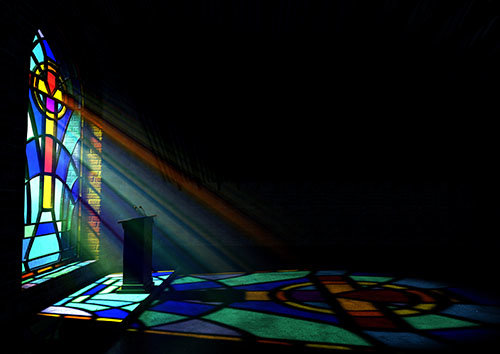A recent joint study by the Public Religion Research Institute and Brookings Institute says that a majority of Americans don't see their country as a Christian nation.
The findings were part of a larger report on immigration and concerns involving cultural change shaping the 2016 election, exploring topics such as employment, racism, and the threat of terrorism. In it, 41 percent said America has always been a Christian nation and continues to be so today. Of the remaining respondents, however, 42 percent said the country was once Christian but isn’t anymore while 15 percent said America has never been a Christian nation.
 A study released last week reported that only 41 percent of Americans feel their country is a Christian nation, with an equal number saying that it was before but has ceased to be. ALLANSWART/Getty
A study released last week reported that only 41 percent of Americans feel their country is a Christian nation, with an equal number saying that it was before but has ceased to be. ALLANSWART/GettyA study released last week said that only 41 percent of Americans feel their country is a Christian nation.
Among white evangelicals, the perception of America as no longer a Christian nation has increased over the past four years from 48 percent in 2012 to 59 percent stating that opinion today.
Index readers responding on Facebook agreed the country is no longer a Christian nation, with some debate on how intrinsic Christianity was at the country’s birth and its staying power as America developed to today, as well as how serious individuals took their own relationship with Christ.
“The collective consciousness of America was shaped by Judeo-Christian values, but there is no such thing as a Christian nation,” wrote Clark Bunch, pastor of Unity Baptist Church in Plainville. “The establishment clause has been in the Bill of Rights since the passage of the Constitution in 1787. An interesting notion is that there are not fewer Christians today than fifty or a hundred years ago but that more people are honest about not being Christian.”
Branson Sanders, student minister at Oxford Baptist Church, said that America never was a Christian nation. “It was an Enlightenment era nation with Christian support fueling individualism.”
Jeff Jones, of Alpharetta, pointed toward a heavy influence of Christianity in the country’s early days, but with that influence waning heavily recently. “In terms [of] the design of our nation, Constitution, traditional American culture - yes these all are built wholly upon the Protestant understanding of Scripture.
“… But taking the modern American implementation, with its religion of humanism/atheism, its multiculturalism, and its disdain for the authority and love of God, it is easy to see why they think the US is no longer a Christian nation. Note that, in this post, to be a ‘Christian nation’ or not is not a matter of law or Constitutional establishment, but a reflection of the nation's people and who they serve.”
Bunch, in his comments, also said the association of America with Christianity in previous decades probably wasn’t as strong as it appeared.
“Atheism, homosexuality, etc. did not have a comfortable place in our society so certain individuals their opinions to themselves while the majority of church going Americans assumed everyone believed in the same Christian nation they did,” he said. “People in the community no longer feel the need to feign faith by occasional church attendance in order to be well respected.”
Using the 1950s as a benchmark, respondents were asked if American culture and way of life has changed for the better or worse. Among all Americans “worse” received the most votes by a slim margin even though “better” was chosen by four of the seven focus groups by religious affiliation.
Groups ascribing to the “better” camp were those belonging to a non-Christian religion (71 percent), Black protestants (69 percent), Hispanic Catholics (62 percent) and the religiously unaffiliated (61 percent). Those feeling the country has worsened since the 1950s were White mainline protestants (54 percent), White Catholics (64 percent) and White evangelical protestants (70 percent).
The perception of the country's direction among whites split along class, as a majority (54 percent) of white college-educated Americans said America has improved since the 1950s while only 37 percent of white working-class Americans said so.